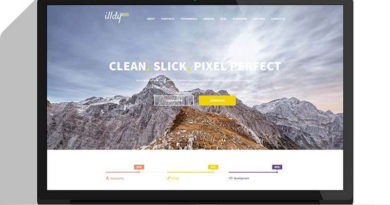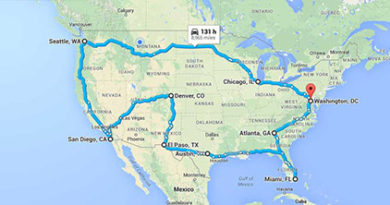How To Start A Profitable Ecommerce Business For Free
There are two main reasons for wanting to start an ecommerce business for free: you don’t have much money to start a business, or you want to practice running your own business without risking your own money.
If you don’t have much money to start a business, then obviously starting a business for free is ideal. But why in the world would someone want to start a practice business?
Why you should start a practice business
If you had came up with the idea for Facebook back in 2004 at the same time as Mark Zuckerberg, would you have been able to take the concept as far as he did? Or if you had the same idea for Under Armour as Kevin Plank did back in 1996, could you have built it to the massive company it is today?
The truth is that a significant majority of people, even with the exact same idea, couldn’t have done what they did. An idea is worthless without great execution.
Great startup execution is an acquired skill that can always be improved upon. However, these skills are best learned by doing, which is why starting a practice business is a great idea, specifically for the following reasons–
Learning from past experiences
Whether you’ve succeeded or failed at a previous startup, the fact that you’ve traveled the road at all is a huge advantage. From the very mundane tasks to the complex startup dynamics, having a general idea of how to get from point A to point B improves your speed, efficiency and overall chances at success.
Knowing what tools to use
Thanks to the rise of cloud software, almost every single task that you will encounter while launching and growing your business can now be automated. This drastically reduces your overall startup costs and increasing your margins, revenue and scalability. But do you know which tools are best in what situations? Do you know which ones integrate seamlessly with others? If you’ve used these tools before, you’re in a great position to use them again.
Understanding various marketing methods
One of the biggest mistakes startups make is to work from the assumption that “if they build it, customers will come”. There’s no more brutal dose of reality than launching a new product or service only to hear crickets. By starting and running marketing campaigns from beginning to end over and over, you’ll learn which have predictable outcomes and which involve a certain element of luck, and you’ll be able to plan accordingly.
It’s dirt cheap, and usually free, to start most businesses
Most people think it costs a ton of money to start a business. Wrong. Dead wrong. You just need to be a little creative. Thanks to the abundance of new software, you can launch a fully-functioning ecommerce website for about $20-50 per month. But it gets interesting when you learn that many of these tools come with 14-30 day free trials– so you could literally start a business for free and have at least a 2-week runway before you have to pay anything out of pocket. That first 14-30 days will give you time to learn systems and strategies, but allow you to close the doors quickly if you see things aren’t working as planned without losing a dime. The best part is that even during your free trial, you can make money immediately! This is more-or-less the strategy outlined in the Eric Ries’ famous book Lean Startup.
Business ideas you can start for free
Below are some business ideas that you could start for free today– some within minutes. Remember, it’s not the idea that matters, its the execution. Don’t worry if your dream billion dollar idea doesn’t fit in here. We’re not shooting for the stars– these are simply zero-risk business ideas that allow you to flex your startup muscles and hone your skills, and possibly make money at the same time.
Consulting, coaching or other services
Tools: GetResponse, Unbounce, Shopify
Pros: Zero upfront costs, high profit margins
Cons: Potentially not scalable, could be time-consuming
No matter what your expertise is or where your passions lie, with the sheer number of people that currently have access to the internet, you’ll without a doubt be able to find more than enough people to pay for your knowledge. Whether you’re coaching people towards their fitness goals, consulting organizations on specific matters, or providing personal or professional services, it’s very easy to set up the infrastructure to start getting paying customers today. The tough part is finding customers and converting them to paying customers. By utilizing a few smart inbound marketing methods to drive traffic to your landing page, you could start making money immediately. Be mindful of how much time you’ll need to spend on each customer and make sure it’s worth your time. As you grow, you can consider paid tools to help drive growth– Facebook or Google ads with some A/B testing of your landing page would probably be the most impactful in the beginning.
Informational Products
Tools: GetResponse, Unbounce, Shopify
Pros: Highly scalable, easily manageable
Cons: Must invest a lot of time to build the product
Similar to providing a coaching or consulting service, selling an informational product is another form of monetizing your expertise. But instead of spending your time on each client individually, you spend most of your time upfront making the product, then once it’s launched you can spend as much or as little time as you want on marketing. This is a much more scalable method, because unlike providing a direct service where the main constraint is the amount of time you have available, the only constraint with selling an informational product is how quickly you can ramp up your marketing and sales numbers.
Dropshipping custom printed products on demand
Tools: Shopify + ThePrintful, Teespring, Booster, Adobe Creative Cloud
Pros: Highly scalable, no upfront costs, very quick setup
Cons: Tough to differentiate yourself
My personal favorite of the free practice startup ideas is definitely creating and selling your own custom products such as t-shirts or posters. There are a number of platforms that allow you to do this, but my three favorites are Booster, Teespring and Shopify + ThePrintful. Booster and Teespring are self-hosted, so you won’t need your own website. ThePrintful requires you to upload your own artwork, but with Adobe Photoshop now offering a very affordable monthly subscription, that is hardly a tough barrier to surpass. Running your own product store will teach you a lot about pricing models, marketing strategies, choosing a niche, and overall growth strategies. Plus they are much easier to scale once you have a winning product.
Free & affordable marketing ideas to explore
Remember, the idea is only part of the battle– execution is everything. Most of it comes down to marketing. If you need some guidance on general marketing tactics to explore once your business is up-and-running, here are some good starting points–
Free marketing strategies to consider:
Using hashtags in Twitter and Instagram
Posting relevant pins on Pinterest
Guest posting on relevant blogs
SEO
Affordable marketing strategies to start small with:
(Make sure you have the right analytics in place to know what’s working and what’s not)
Facebook ads
Google Adwords
Reddit Ads
Other free tools I recommend incorporating into your strategy:
Optimizely
MailChimp
Pixabay
Tweetdeck
Rafflecopter
…more
Go ahead and give one of these business ideas a shot– you have nothing to lose and everything to gain! Then let us know your progress by leaving a comment below or tweeting me at @SL_Steinberg.



